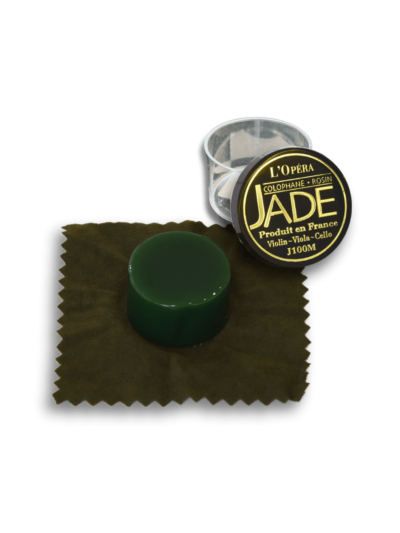
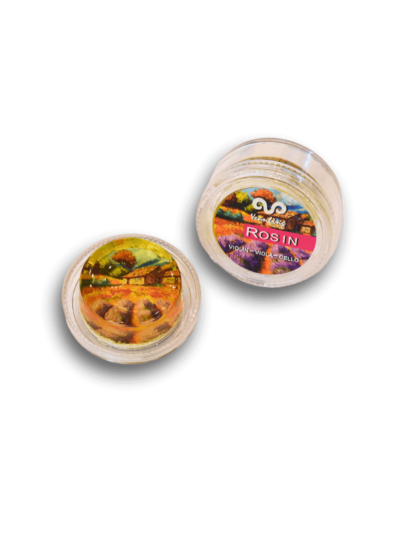
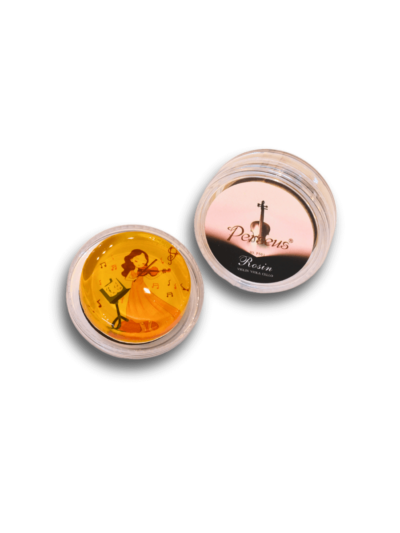
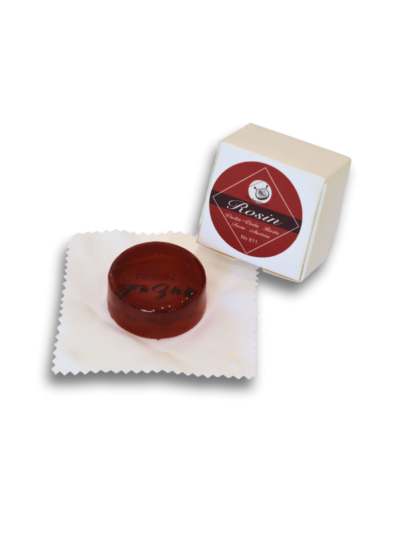
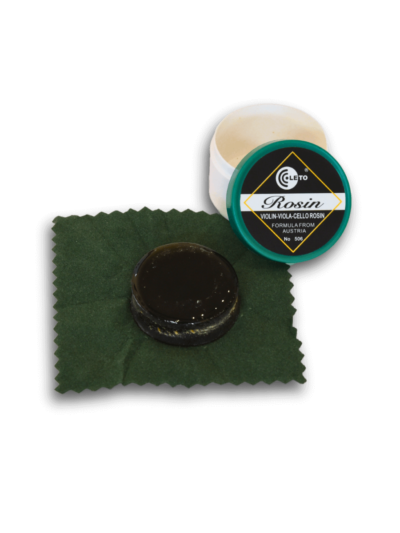
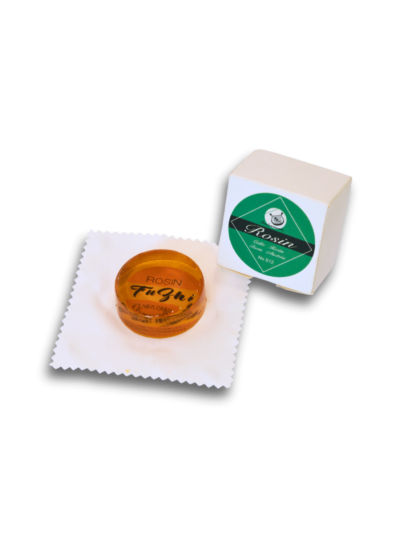
Rosin, also referred to as colophony or Greek pitch, is a hard resin that is obtained from pine trees and some other plants, primarily conifers. This resin is created by heating fresh liquid resin, which results in the evaporation of the volatile terpene elements. Rosin is somewhat see-through and can be found in shades ranging from yellow to black.
The primary purpose of rosin is to enhance the friction between the bow and the strings, thus allowing the player to create sound. When the bow hairs are coated with rosin, it increases their grip on the instrument’s strings, resulting in a more pronounced and vibrant tone. Moreover, rosin also prevents the bow from slipping and ensures better control over the pressure applied to the strings.
At LVL Music Academy, we understand the importance of having high-quality rosin for violin and cello players. That’s why we offer a convenient online shopping experience for rosin varieties like Jade rosin, Pirastro, and more, which can enhance the sound of your bow.
Good rosins can be pricey or affordable. We have high-end one like Jade and Pirastro, but we have cheaper ones that are still good for learners.
To put rosin on your bow, rub the rosin cake on the hair evenly. Don’t use too much. If you play a lot, a light touch every few days is enough.
As a general guideline, it is recommended to apply rosin to your bow every time you practice or perform. This ensures that the bow hair maintains its grip on the strings, producing a clear and resonant sound.
However, it is important not to over-rosin your bow as this can lead to a build-up of rosin dust on your strings and instrument, affecting the sound quality.
Yes, you can definitely use violin rosin on a cello or viola without any issues. Rosin is a universal product that is used across all string instruments to help create friction between the bow hair and the strings, producing sound. So, whether you are playing the violin, cello, or viola, using violin rosin will work just fine.
Certainly! The effectiveness of rosin can indeed diminish over time. Factors such as exposure to air, light, and heat can cause rosin to expire and lose its grip-enhancing properties. It is essential to store rosin in a cool, dark place and seal it properly to extend its shelf life.